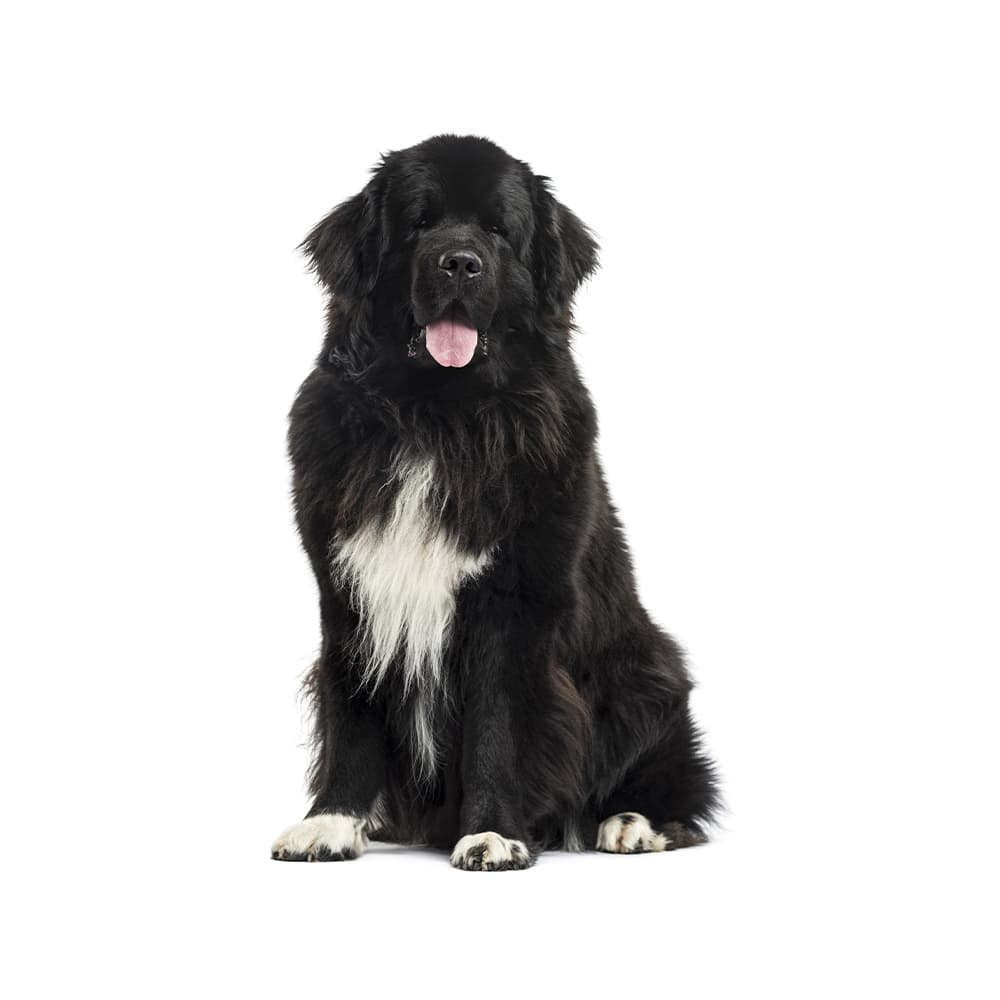Basepaws analyzes this breed as part of a group of other breeds.


Basepaws analyzes this breed as part of a group of other breeds.


Basepaws analyzes this breed as part of a group that also includes Landseer, Newfoundland.
Despite being distinct in characteristics and origin, some pairs or groups of breeds lack the number of genetic differences required to distinguish these populations from one another, particularly when only a subset of these differences are inherited by a mixed breed dog. As we continue to expand our breed database, we aim to increase the resolution of our ancestry algorithm such that differentiating between increasingly specific ancestral sources becomes possible.

The exact origin of the Newfoundland, or Newfie, is unclear, but they are named after Newfoundland island off the east coast of Canada. It is there that they were likely developed from a mix of indigenous dogs and those introduced by the island's settlers, such as the Portuguese, Basques, and perhaps the Vikings. One assumptoin is that the Tibetan Mastiff was introduced and bred with island dogs. The Newfie was bred as a working dog to carry things, rescue swimmers, and tow lines of ships to land. At one point in time, Newfies were required at lifeguarding stations because they were so accomplished at saving people from drowning. They have partially webbed feet, a feature that contributes to their capacity as a successful swimmer. They are also intelligent in their rescuing technique, in that if the person is conscious, they allow them to hold on while being brought to safety; if the person is unconscious, the Newfie will grab the person by the arm so they float on their back while being pulled to safety. They also worked on land pulling loads like lumber, food, or delivering mail long distances.
Newfoundlands can suffer from elbow and hip dysplasia, cystinuria, gastric torsion, epilepsy, subaortic stenosis, von Willebrand disease, cruciate ligament rupture, osteochondritis dissecans, degenerative myelopathy, and thrombopathia. They may also be prone to eye disorders including entropion, ectropion, and cataracts. Newfoundlands have a heavy coat and do not tolerate heat well. Some are very sensitive to anesthesia, so it is important to discuss before any planned surgery. As for all breeds, genetic screening is recommended to assist veterinarians with diagnosis and proactive care, as well as help breeders identify affected and carrier dogs.
Newfoundlands are known for their gentle, sweet-natured temperament. They are usually very good with children and get along well with other animals. They are intelligent, trainable, and protective, but not aggressive. Their calm and patient nature, coupled with their love of water and innate swimming ability, has earned them the nickname "gentle giants".
Newfies have a heavy coat and do not do well in warm weather. They also have an abundance of energy and should be taken on regular walks or given regular activity. They are easily trained and enjoy working with humans. Newfies are also protective and will place themselves between their family and intruders, they are only aggressive when they feel their family or owners are threatened.
A canine genetic lineage is a group of individuals or entire breeds that descended from common ancestors predating modern breed formation. Often these lineages are associated with a ‘type’ of dog with a unique historical working role and associated behaviors (e.g., herding, scent hunting, etc.).
A canine genetic lineage is a group of individuals or entire breeds that descended from common ancestors predating modern breed formation. Often these lineages are associated with a ‘type’ of dog with a unique historical working role and associated behaviors (e.g., herding, scent hunting, etc.).
Breeds within the retriever lineage were bred to retrieve game for their hunter. These breeds can locate game that has been shot near water or in dense brush and bring it back without damaging it. Retrievers have strong swimming abilities, are intelligent, eager to please and highly trainable which makes them excellent hunting companions. Retrievers are also friendly, and sociable with high energy levels.
Example breeds with ancestry from this lineage include Golden Retriever, Labrador Retriever, and Chesapeake Bay Retriever.
The Newfoundland has a large lung capacity and is a strong and powerful swimmer that is able to bring a drowning victim to shore.
The Newfoundland breed has a history as an accomplished water rescue dog. Their water-resistant coat and webbed feet make them excellent swimmers.
A Newfoundland dog named Seaman accompanied the Lewis and Clark Expedition, serving as a hunter, retriever, and guard dog. Seaman is depicted in 10 different monuments of Lewis and Clark across the United States.
Literature also has a few famous Newfoundlands. In J.M. Barrie's "Peter Pan," the Darling family's dog Nana is a Newfoundland.
U.S. President James Buchanan had a Newfie named Lara. She was well-known around the White House, as she'd lay motionless for hours around the President, keeping one eye open on him at all times, while the other eye was closed.
https://www.akc.org/dog-breeds/newfoundland/
https://www.fci.be/en/nomenclature/NEWFOUNDLAND-50.html
https://www.ukcdogs.com/newfoundland
https://www.petmd.com/dog/breeds/c_dg_newfoundland
https://www.pawprintgenetics.com/products/breeds/78/
Recommended by top vets with decades of experience
21 breeds
64 genetic health markers
50 genetic trait markers
